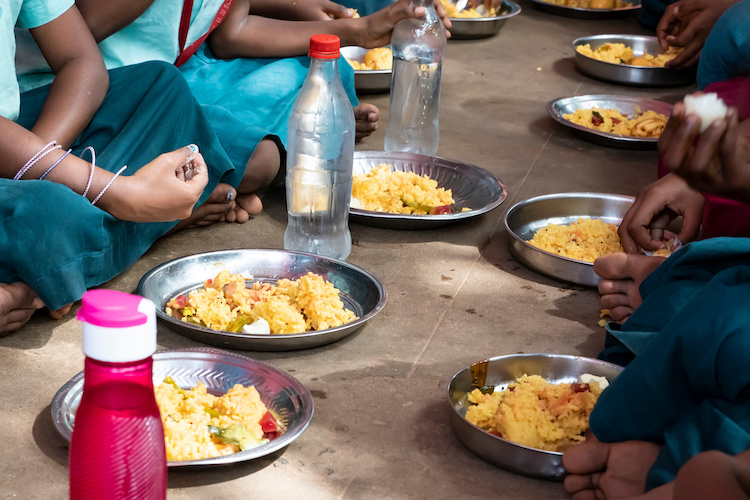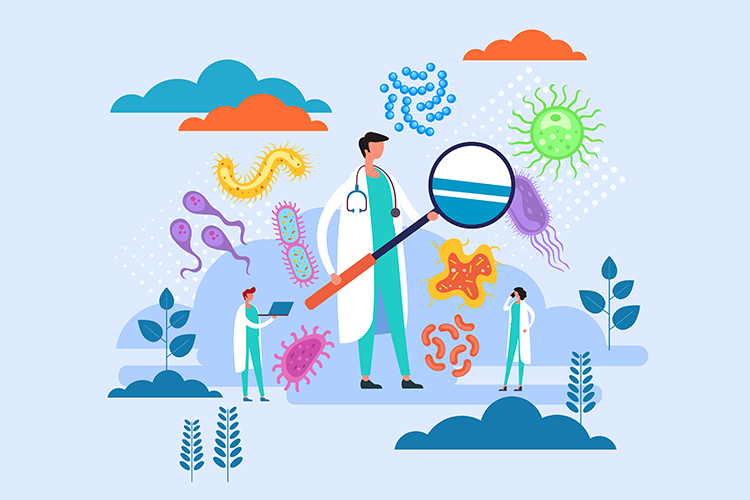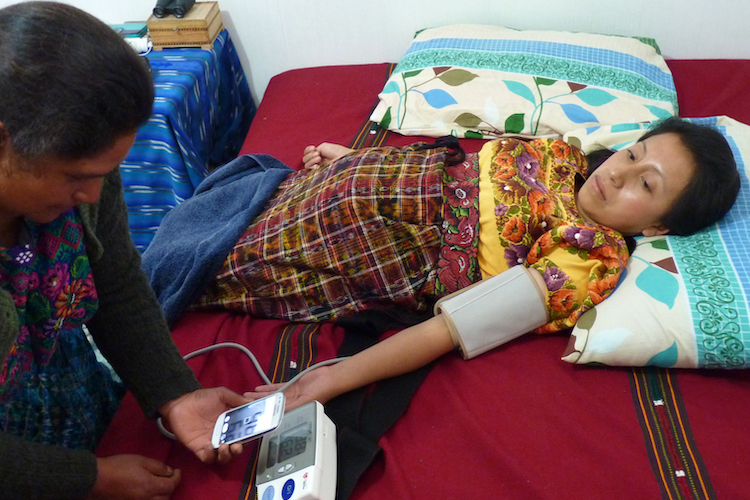Highlights of Spring 2023 Courses

Our health is essential now more than ever. Discover these Spring 2023 courses that revolve around several facets of our living health.

HLTH 325 | Double Burden of Malnutrition
Malnutrition is "poor nutrition" due either to excesses or deficiencies. Historically, obesity was a problem exclusive to high-income countries and undernutrition was a problem exclusive to low- and middle-income countries. With the growing global obesity epidemic, diet-related non-communicable diseases are increasingly important causes of illness and death in low-and middle-income countries. These countries have a health infrastructure developed to address undernutrition, which remains a public health problem, while simultaneously having to contend with the growing challenge of over nutrition. In this course, we will explore different measures, causes, and consequences of undernutrition and over nutrition, and interventions to prevent them. Building on this base, we will critique interventions that improve one type of malnutrition while inadvertently contributing to another kind of malnutrition. And, we will examine options for reducing both types of malnutrition at the same time. There are two main goals in this course: to provide students with the skills and practice in (1) identifying if either or both types of malnutrition exist in individuals, households or populations and (2) developing interventions that simultaneously reduce both forms of malnutrition.
Taught by: Helena Pachón, PhD, MPH

HLTH 334 | War and Trauma
This class covers cultural and clinical ideas about war and trauma from WWI to the present. Students should be prepared to discuss health conditions caused by combat, sexual violence, and other forms of traumatic injury. All semester, we will reflect on how different forms of evidence (novels, poetry, testimonials, theoretical essays, and clinical case-studies) can reveal different facets of traumatic experience. We will also discuss the expanding sense of trauma in contemporary culture through popular notions of triggeredness, microaggressions, safe spaces, etc.
Taught by: Chris Eagle, PhD

HLTH 385-4 | Arts, Community, & Public HLTH
How can the arts engage communities, reflect lived experiences & inform research? To bridge the gap between knowledge and action, there is a need for more community based participatory research. Art-based methods are qualitative tools that uses artistic processes to express ones lived experiences in appropriate, ethical, and representative ways and allow for deeper research insight and interpretation. This course is designed to help students to understand how arts-based methods are currently applied in community research practice within the broad field of public health. From Hip Hop, poetry & theater to digital stories, paintings & photography, we will examine how arts-based methods are applied in public health issues including social justice, gender equity, mental health & food security.
Taught by: David Denton and Fatima Waseem

HLTH 385-5 | Sights and Sounds of Health
This course will explore our perception of sights and sounds. We will investigate how visual and auditory stimuli contribute to, or disrupt, our health and well-being, how their processing pathways may be disrupted, and potential interventions to restore these critical sensory modalities.
Taught by: Amanda Freeman

HLTH 408 | Epidemiology in Action
Health problems have many complex causes. After mapping the causes of a problem from a specific context (with research, theory & epidemiology), learners will create a proposal with real-world solutions. The proposal will be converted into a persuasive presentation to request funding for the work. (Prerequisites: HLTH 207)
Taught by: John Cranmer, DNP, MPH, CPH, EBP-C, ANP-BC
HLTH 409 | Co-design for Health Tech.
This interdisciplinary course will provide an overview of the key issues involved in the introduction of sustainable healthcare technology in resource-constrained settings. The course combines lectures on critical concepts in affordable health care technology development and implementation, including needs evaluation, supply chain infrastructure and usability design, financial sustainability, and the ethics of low-cost healthcare provision, with practical learning. Through close faculty mentorship, small groups of students will work in cross-disciplinary teams to create a solution to an identifed real-world health problem, such as delivering clean water or perinatal monitoring. Students will develop low-cost mobile health (mHealth) innovations in recognition that such technologies are increasingly relied upon as a rapid route to implementing and deploying healthcare solutions. Organizations based within relevant resouce-constrained settings will be identified who can provide feedback and detailed information important to the solutions; wherever possible, pilot implementation of student-developed apps will be facilitated with local partners at the conclusion of the course.
Taught by: Rachel Hall-Clifford and Gari Clifford

HLTH 420 | Mythbusters: Nutrition Facts and Fiction
Nutrition is at the center of a cultural dialogue about health, though the line between cultural ideology and scientific knowledge is increasingly unclear. In this course, students will learn and use evidence-based nutrition knowledge to critically analyze health-related information, fads, and myths in popular media and translate the scientific evidence to the greater community. (Prerequisite: HLTH 220)
Taught by: Myra Woodworth-Hobbs
